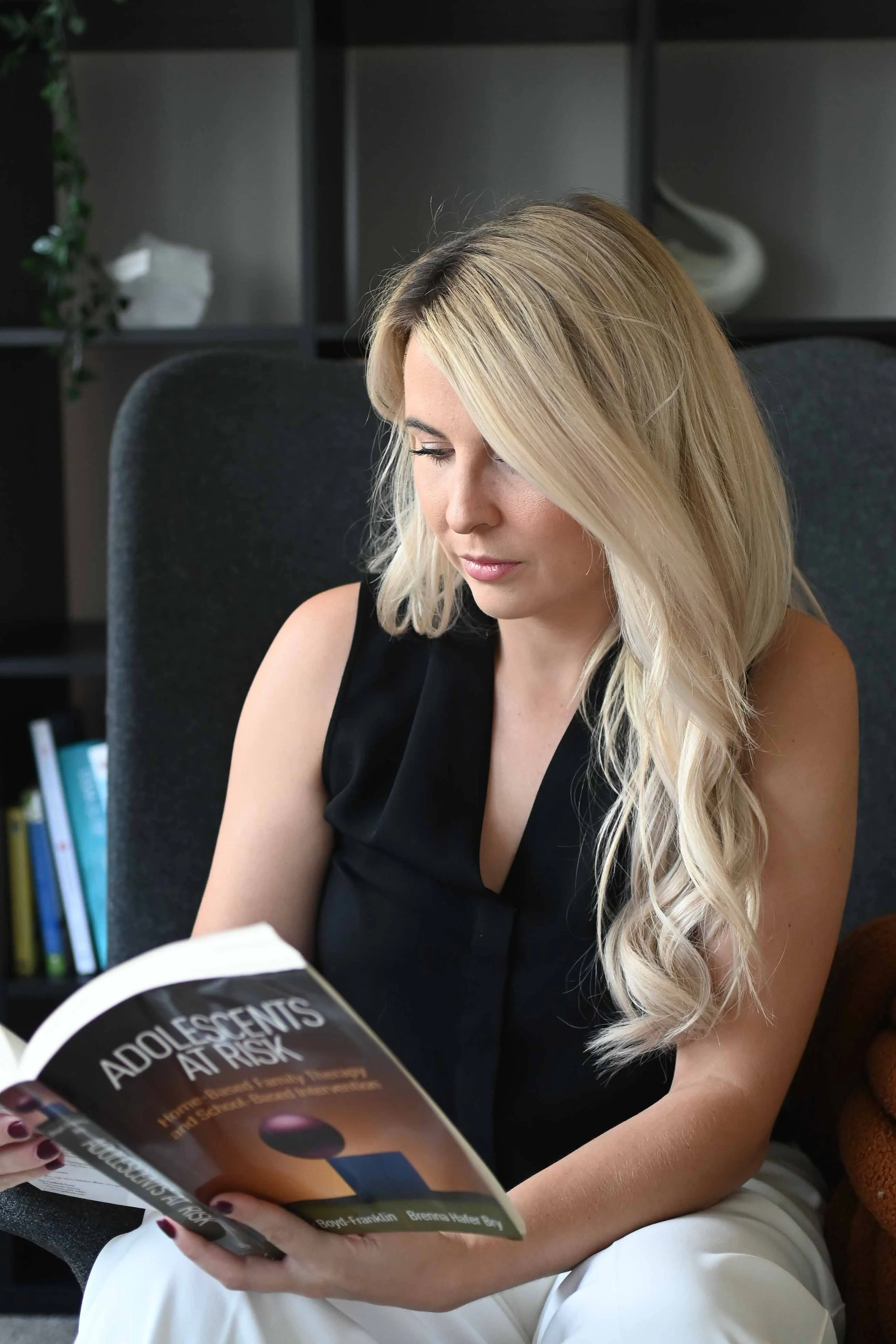School Refusal Therapy for Children and Teens in Calgary
School refusal isn’t just “not wanting to go.” For many kids, it feels like facing a mountain in flip-flops—overwhelming, exhausting, and impossible to climb alone.
As a parent, you're trying everything: pep talks, incentives, consequences, even tears of your own. But the resistance doesn’t go away — or it morphs into stomachaches, panic attacks, meltdowns, or silence.
At Creative Sky Psychology in Calgary, we help families move from power struggles and panic to partnership and progress. Whether your child’s school refusal is new, chronic, or getting worse, we’ll help you figure out what’s really going on — and how to support change that lasts.
What Is School Refusal?
School refusal is more than “acting out” or “being difficult.” It’s often a stress response rooted in:
Perfectionism or fear of failure
Signs may include:
Frequent complaints of illness (headaches, stomachaches)
Crying, clinging, or freezing before school
Tantrums or shutdowns at drop-off
Missed days, late arrivals, or refusing to leave the car
Exhaustion, panic, or low mood after school
Why It’s Not Just About “Making Them Go”
You’ve likely heard advice like “Don’t give in,” “Just get them there,” or “They’ll adjust.” But pushing harder often backfires — especially if your child’s nervous system is in fight-flight mode.
At Creative Sky, we don’t aim to force attendance. We aim to restore safety, rebuild coping skills, and support emotional regulation, so your child can return to school without trauma or re-triggering.
Our Approach to School Refusal Therapy in Calgary
Our psychologists look beyond behavior to uncover what’s underneath. We:
Build trust and emotional safety with your child or teen
Help them name what feels hard or scary about school
Use CBT, ACT, and Emotion Regulation Therapy to build coping mechanisms
Address related concerns like anxiety, trauma, perfectionism, or sensory overload
Work collaboratively with parents and schools to reduce triggers
Create step-by-step re-entry plans that support the whole family
We’re not here to rush — we’re here to rebuild.
Therapy By Age Group
Younger Children (Ages 4–8):
Young kids may not have the language to explain their school fears. We use play therapy, parent-child sessions, and emotional regulation strategies to help them feel safe, seen, and supported.
School-Aged Kids (Ages 9–12):
This age group often shows school refusal through meltdowns, stomachaches, or avoidance. We use CBT, creative expression, and collaborative problem-solving to help kids develop coping strategies while addressing underlying anxiety or stress.
Teens (Ages 13–17):
For teens, school refusal may come with shame, depression, or social anxiety. We focus on identity, autonomy, emotional safety, and real-world stressors, using talk therapy, ACT, and trauma-informed support to get them re-engaged with school and life.
What Parents Need to Know. And What They Can Do
You are not the problem. You’re the safe base your child returns to — and the one holding everything together. We help parents:
Stop the cycle of morning battles
Learn what helps vs. what accidentally reinforces avoidance
Support your child’s nervous system through transitions
Set boundaries with empathy
Work with schools without feeling like the enemy
When we work with kids, we always work with parents, too.
Frequently Asked Questions
-
School refusal isn’t defiance—it’s a stress or anxiety-based avoidance of school. Children with school refusal often want to go but feel emotionally or physically unable to. Unlike truancy, these kids may cry, panic, or cling at drop-off. Therapy focuses on the root cause, not punishment or force.
-
School refusal is often linked to anxiety, separation issues, social struggles, learning challenges, bullying, or sensory overload. Some children may also be experiencing perfectionism, trauma, or undiagnosed neurodivergence. Therapy helps uncover the “why” behind the behavior and gently rebuild a sense of safety and trust.
-
Yes. We collaborate with teachers, administrators, and school counsellors (with your consent) to create consistent, supportive re-entry strategies. Our psychologists advocate for accommodations, transitions, and emotional safety that support your child without forcing compliance before they’re ready.
-
Often, yes. Many children who refuse school are experiencing separation anxiety, social anxiety, performance fears, or selective mutism. Others may fear something bad happening at school or at home while they’re away. Therapy targets these fears using a compassionate, exposure-informed approach—not shame or pressure.
-
School refusal can emerge suddenly due to stress, transitions, social rejection, academic challenges, or emotional overload. It’s common to see it spike after long breaks, illness, or a big life change. We help families make sense of the shift and build a gentle return-to-learn plan.
-
Stay calm and connected—don’t force or punish. Validate their emotions (“This feels really hard”), set predictable routines, and celebrate even small steps toward progress. Our Calgary team provides parents with coaching and language to reduce battles and rebuild trust around school.
-
Therapy provides a safe space to explore fears, build emotional regulation, and create realistic, step-by-step plans for school re-entry. We use CBT, emotion-focused therapy, play-based strategies, and collaboration with schools and families. Our Calgary psychologists support both the child’s feelings and their functioning
-
If your child is missing multiple days, becomes highly distressed in the morning, complains of stomachaches or headaches with no medical cause, or shuts down when school is mentioned, it’s time to get help. Early support leads to better outcomes and less long-term academic and emotional impact.
School Refusal Therapy in Calgary - Reduce Stress & Rebuild Confidence
We work with children, parents, and schools to reduce stress and rebuild confidence so students can return to learning with success.
Our Calgary SW psychologists support families in Glenbrook, Signal Hill, West Springs, Aspen Woods, and surrounding communities—with virtual support across Alberta.
📍 #5 – 2005 37 Street SW, Calgary
📞 587-331-4464





